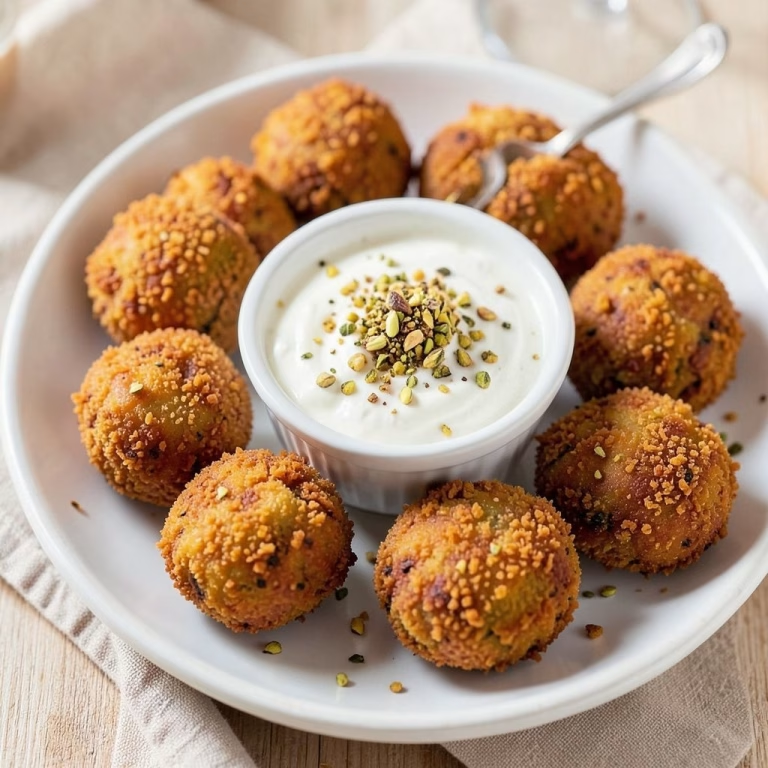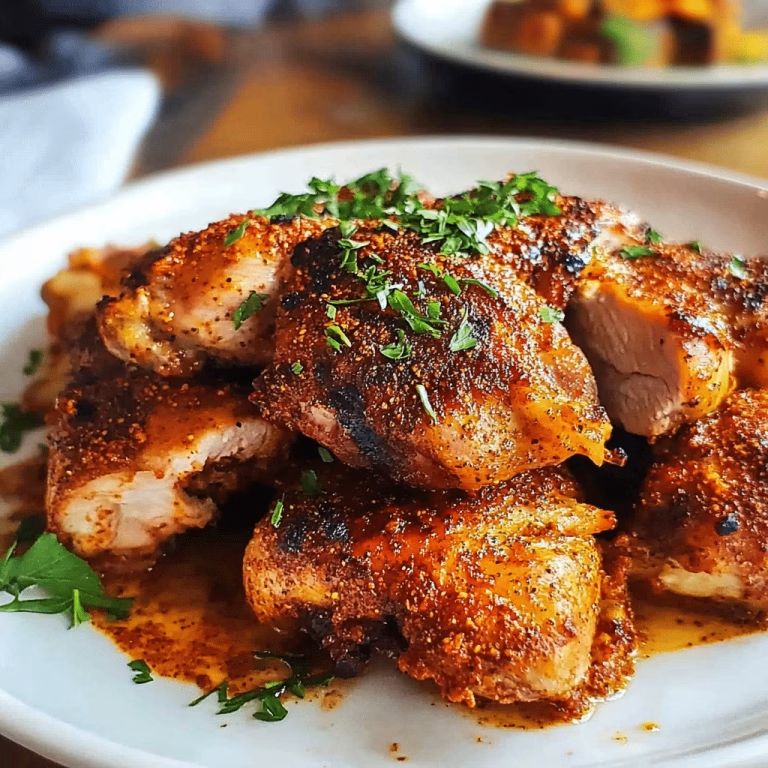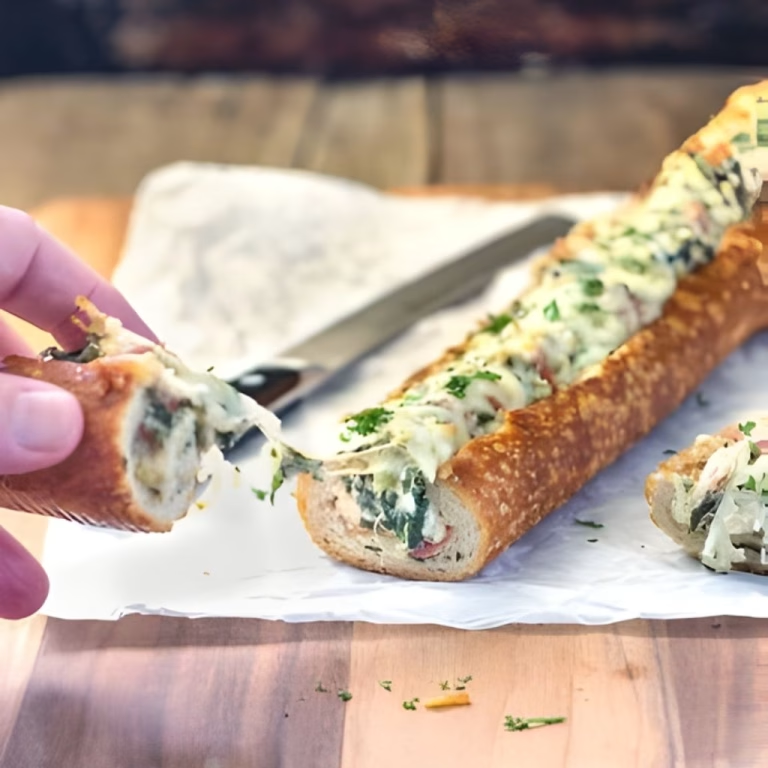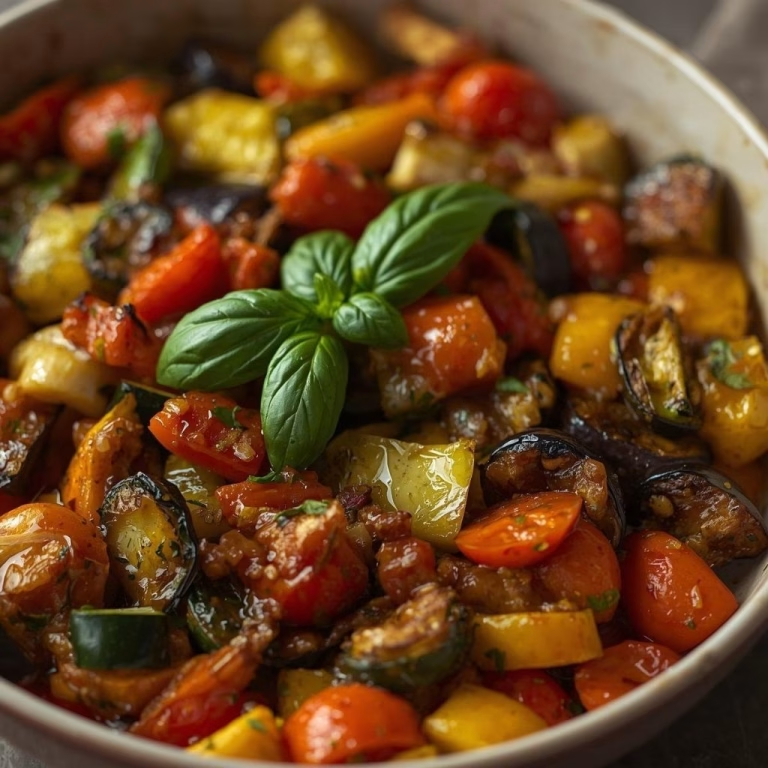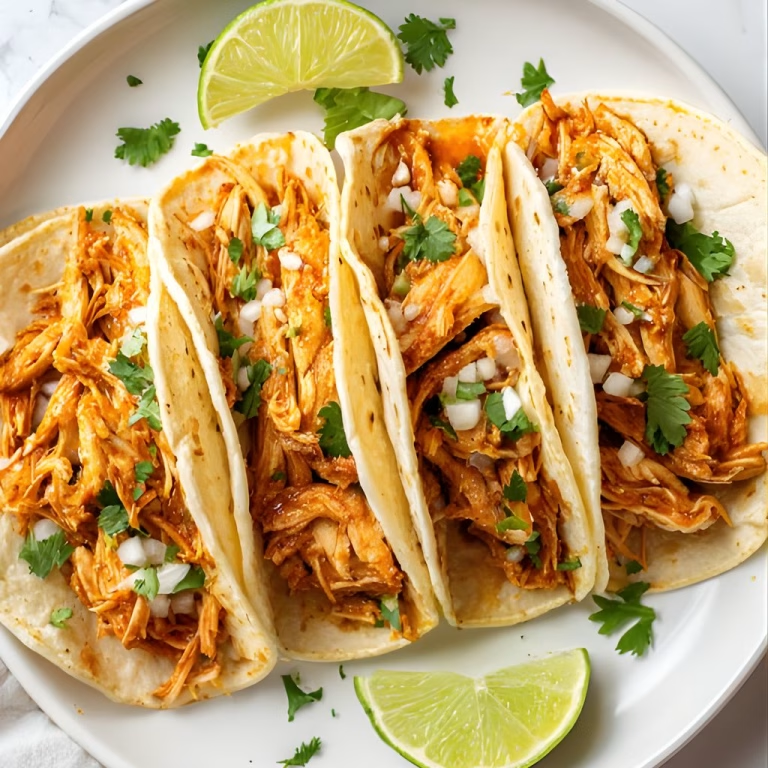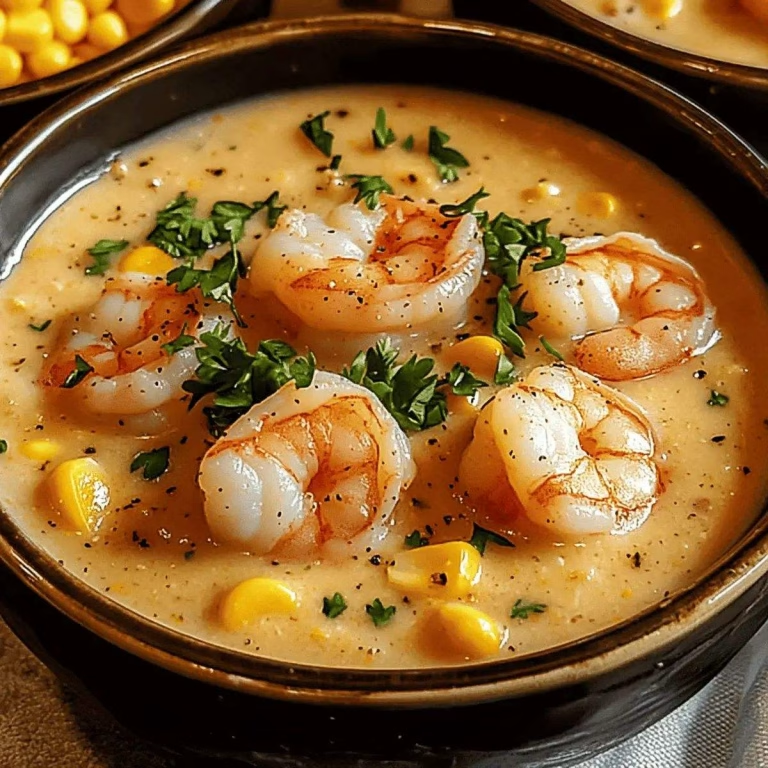Gnocchi Carbonara Recipe | Creamy, Cheesy Italian Comfort
I remember the first time I made gnocchi carbonara—I was curious whether the soft potato dumplings would really carry that classic carbonara sauce. But once I took a bite, I was smitten: creamy, salty, silky gnocchi with bits of crisp pancetta.
I rushed to tell everyone how easy it was. In fact, if you’re a fan of hearty gnocchi dishes, you might also love this easy cheesy gnocchi casserole recipe for another comforting dinner idea.
In this article, I’ll walk you through each step in a friendly tone, from ingredients to plating, so you can make this comforting dish at home too.
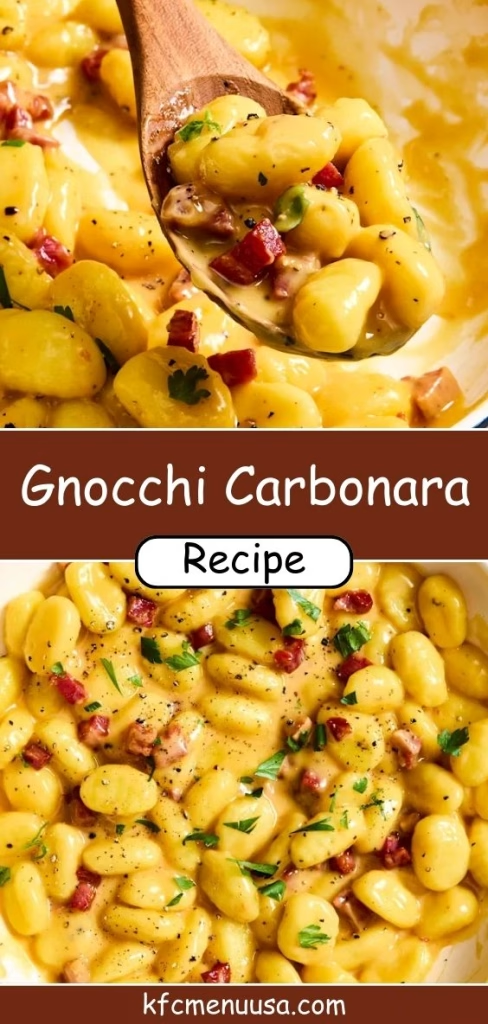
Ingredients
Here’s what I used (about 2–4 servings). I include tips so yours turns out just right:
- 1 lb (≈ 450 g) potato gnocchi (shelf-stable, refrigerated, or frozen) – shelf-stable or refrigerated are easiest; frozen works too but thaws slightly so it doesn’t release too much water.
- 4 oz (≈ 115 g) diced pancetta (about ¾ cup) – pancetta’s rendered fat is key to flavoring the dish.
- 1 teaspoon kosher salt (for the gnocchi water) – only salting lightly because pancetta + cheese add salt.
- ¾ teaspoon coarsely ground black pepper, plus extra for serving – the pepper is a defining flavor in carbonara.
- 1 large egg
- 1 large egg yolk (in addition to the whole egg) – adds creaminess without needing cream.
- ¾ oz finely grated Pecorino Romano (about ½ cup) – its sharpness and saltiness define the sauce.
- ½ oz finely grated Parmesan (about ⅓ cup) – mellows the Pecorino’s bite slightly.
- Chopped fresh parsley, for garnish (optional) – this adds freshness and color.
Note: serves about 2 to 4 people
Variations
You can customize this dish in several ways:
- Dairy-free / vegan: Use a plant-based egg substitute (or a mixture of silken tofu + aquafaba), vegan “Parmesan,” and swap pancetta for smoked mushrooms or vegan bacon.
- Lower-sodium version: Use a leaner cut like turkey bacon or unsalted bacon, and reduce the amount of added salt in the water.
- Veggie additions: Toss in peas, sautéed mushrooms, or spinach toward the end for extra texture and color.
- Cheese swaps: If you lack Pecorino, use all Parmesan (or a 50/50 mix). The result is milder but still lovely.
- Herb or citrus twist: Stir in a little lemon zest or fresh herbs (parsley, basil) just before serving for brightness.
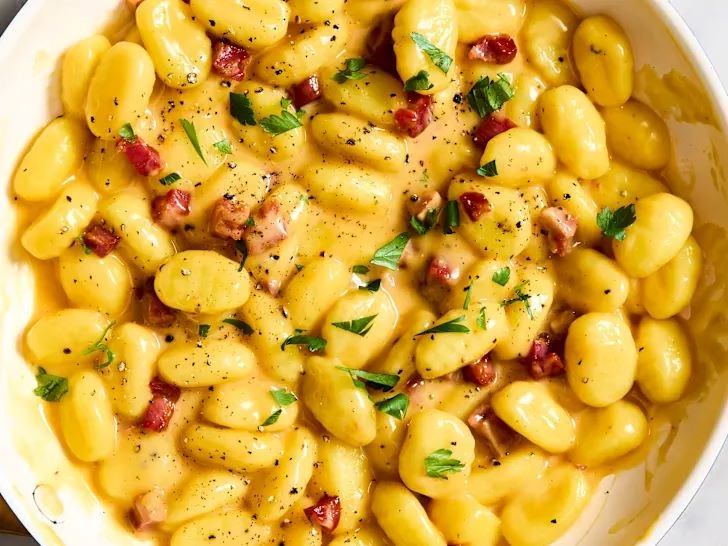
Cooking Time
Here’s how long each part takes:
- Prep Time: 5 minutes
- Cooking Time: 10 minutes
- Total Time: 15 minutes
Equipment you need
Here are the tools I used (and why):
- Large pot (to boil the gnocchi)
- Nonstick skillet (to render pancetta and toss everything)
- Slotted spoon (to scoop gnocchi while leaving water behind)
- Mixing bowl (to whisk eggs + cheese)
- Whisk (or fork, to mix the sauce)
- Microplane or fine cheese grater (to grate Pecorino / Parmesan finely)
How to Make Gnocchi Carbonara Recipe
Below is my step-by-step (with ~3 lines per section) for Gnocchi Carbonara Recipe:
Cook the pancetta
I heat the skillet over medium heat and add the diced pancetta. As it cooks, I let it render its fat and crisp up, stirring occasionally. When golden and crunchy, I stir in the coarse black pepper so the fat picks up that spiciness.
Boil the gnocchi
While the pancetta is cooking, I bring a large pot of salted water to a boil (using the 1 teaspoon kosher salt). I drop in the gnocchi and cook until they float, usually 2–3 minutes if fresh (slightly longer if frozen). Using a slotted spoon, I lift them out and reserve some of the starchy water.
Combine gnocchi with pancetta drippings
I add the gnocchi into the hot skillet with pancetta and toss, coating them in the rendered fat. I pour in about ⅓ cup of the reserved cooking water to help loosen things up, stirring gently to combine.
Whisk eggs and cheeses
In a separate bowl, I whisk together the egg, yolk, grated Pecorino, and Parmesan until smooth and well blended. The mixture should be thick. If needed, I add a bit of reserved water to adjust consistency.
Emulsify sauce & finish
Off the heat, I slowly stream the egg-cheese mixture into the skillet while stirring constantly—so the sauce becomes silky, not scrambled. If things get too thick, I return to very low heat briefly, adding more water a tablespoon at a time until smooth.
Additional Tips for Making this Recipe Better
From my own trials, here are a few nuggets I always remember:
- I always use a Microplane or very fine grater for the cheeses—this helps them melt smoothly into the sauce.
- I remove the skillet from heat before adding the egg mixture—if it’s too hot, scrambling can happen.
- I add reserved cooking water little by little—it’s easier to thin than to fix a broken sauce.
- I stir vigorously and swiftly when combining—this helps the egg, cheese, and water emulsify into a creamy sauce.
- I taste along the way (especially for salt and pepper), because pancetta + cheese tend to push sodium up quickly.
How to Serve Gnocchi Carbonara Recipe?
When it’s time to plate, I swirl the gnocchi into shallow bowls so the sauce coats each piece beautifully. I scatter extra grated Pecorino or Parmesan on top and add a crackle of fresh black pepper. A sprinkle of chopped parsley (or chives) brings color. If I have lemon zest or extra virgin olive oil, I might drizzle a hint to brighten it. Serve with a crisp green salad or garlic bread to balance the richness—or explore more comforting options in our lunch recipes collection for pairing ideas.

Nutritional Information
Here’s a rough estimate per serving:
- Calories: ~ 600–800 kcal
- Protein: ~ 20–30 g
- Carbohydrates: ~ 60–80 g
- Fat: ~ 25–40 g
These are approximate and vary with ingredient choices and portion sizes.
Make Ahead and Storage
Storage (Refrigerator)
I let the gnocchi carbonara cool to room temperature quickly, then store it in an airtight container. It’s best eaten the next day—beyond that, texture begins to suffer.
Freezing
I generally avoid freezing this dish—gnocchi tend to become dense and meals with egg-based sauces don’t reheat well after freezing.
Reheating
To warm leftovers, I gently reheat in a skillet over low heat, adding a splash of reserved water, milk, or cream and stirring frequently until warmed through. Microwaving can break the sauce, so I use it only if needed and in short bursts.
Why You’ll Love This Recipe?
Here are a few reasons I (and you) will fall for this version of gnocchi carbonara:
- It’s quick and fuss-free—you can get it on the table in about 15 minutes, even on a busy evening.
- It’s rich and indulgent without needing heavy cream—just eggs, cheese, and rendered fat.
- It’s flexible—you can play with ingredient swaps, add vegetables, or adapt to dietary needs.
- It uses simple, accessible ingredients—most come from your pantry or local store.
- It’s a fun twist on classic carbonara—using gnocchi makes the texture more pillow-like and comforting. You can also enjoy a different take with this one pot taco gnocchi recipe for a completely new flavor adventure.

Gnocchi Carbonara Recipe
Ingredients
Method
- I heat the skillet over medium heat and add the diced pancetta. As it cooks, I let it render its fat and crisp up, stirring occasionally. When golden and crunchy, I stir in the coarse black pepper so the fat picks up that spiciness.
- While the pancetta is cooking, I bring a large pot of salted water to a boil (using the 1 teaspoon kosher salt). I drop in the gnocchi and cook until they float, usually 2–3 minutes if fresh (slightly longer if frozen). Using a slotted spoon, I lift them out and reserve some of the starchy water.
- I add the gnocchi into the hot skillet with pancetta and toss, coating them in the rendered fat. I pour in about ⅓ cup of the reserved cooking water to help loosen things up, stirring gently to combine.
- In a separate bowl, I whisk together the egg, yolk, grated Pecorino, and Parmesan until smooth and well blended. The mixture should be thick. If needed, I add a bit of reserved water to adjust consistency.
- Off the heat, I slowly stream the egg-cheese mixture into the skillet while stirring constantly—so the sauce becomes silky, not scrambled. If things get too thick, I return to very low heat briefly, adding more water a tablespoon at a time until smooth.
Notes
- I always use a Microplane or very fine grater for the cheeses—this helps them melt smoothly into the sauce.
- I remove the skillet from heat before adding the egg mixture—if it’s too hot, scrambling can happen.
- I add reserved cooking water little by little—it’s easier to thin than to fix a broken sauce.
- I stir vigorously and swiftly when combining—this helps the egg, cheese, and water emulsify into a creamy sauce.
- I taste along the way (especially for salt and pepper), because pancetta + cheese tend to push sodium up quickly.

